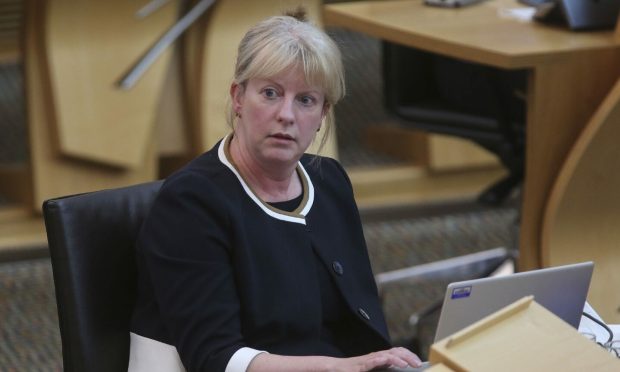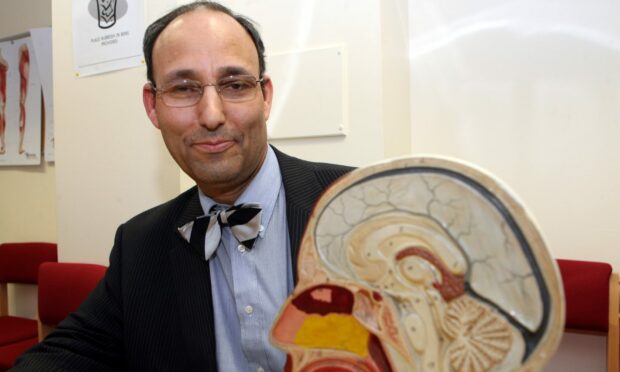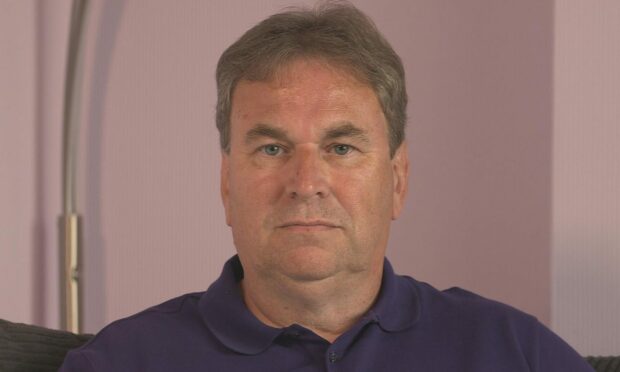Victims of disgraced former NHS Tayside surgeon Sam Eljamel feel vindicated today after it was confirmed a public inquiry will be held into the long-running scandal.
But it’s taken them almost a decade since the rogue doctor was first suspended for repeatedly harming patients to reach this stage after endless campaigning.
Deputy First Minister Shona Robison – a Dundee MSP – was the SNP’s health chief in 2015 when details of Eljamel’s butchery first grew in public prominence.
The SNP ruled out a public inquiry in September that same year despite demands for a full probe from campaigner Pat Kelly, claiming NHS Tayside had made vital efforts to prevent a repeat of the fiasco.
However, a shock report unveiled last week found health board chiefs should have suspended him far sooner than they did.
The review also admitted NHS Tayside had little evidence to show key recommendations from previous reports had ever been actioned.
When Humza Yousaf rejected calls for a public inquiry in June, the potential length of a judge-led probe was one of his central reasons.
However, patients and rival politicians have pointed out an inquiry could have been done and dusted by now had Ms Robison stepped in sooner.
Speaking to The Courier just after the inquiry was announced, the deputy first minister claimed the shocking revelations in NHS Tayside’s due diligence report were central to her party’s U-turn.
The Dundee MSP apologised for patients coming to harm under the care of NHS Tayside, but defended her own handling of the scandal.
Report was a ‘game-changer’
She said: “NHS Tayside’s significant report was a game-changer in terms of revealing a lot of information that we previously didn’t know.
“I think we have now reached the right conclusion in the light of all of the evidence that we need to have a public inquiry.”
Asked why she did not grant a full probe herself, Ms Robison said: “All of us, when we have held the position of health secretary, have been asked to commit to public inquiries about various issues.
“But this issue has grown over time, in terms of the number of patients affected, and the amount of information emerging.”
On whether the government should say sorry to victims, Ms Robison said: “The biggest apology should come from Mr Eljamel himself clearly.
“Of course, all of us in government want to recognise concerns, and we’re very sorry for the harm that has come to them [patients] through their engagement with the NHS.”
A statement issued by the Scottish Government in 2015, which Ms Robison would have approved, read: “We are very sorry for the impact that the actions of Professor Eljamel have had on patients.
“NHS Tayside has written to all patients directly affected to reiterate this.
“When the actions of Professor Eljamel came to light NHS Tayside commenced an immediate investigation and we are satisfied that this was thorough and wide-ranging.
“NHS Tayside have now put in place the necessary governance arrangements to prevent this happening again in future.
“There are no plans for an inquiry above and beyond the thorough investigation carried out by the board.
“Of course, any learning from that investigation will be spread across NHS Scotland.”
Ms Robison served as health secretary from 2014 to 2018, when she quit due to a number of failings while in the post.
She had been heavily criticised for being unable to get a grip on the NHS Tayside financial crisis.
Lead campaigner Pat Kelly, who was harmed by Eljamel, said: “Something that should have happened years ago is happening now.”
Mr Kelly claimed he had been “fobbed off” by the government and added: “They’ve deliberately stood in our way.”
Taking aim at Ms Robison, he said: “But I feel at the time Shona Robison and the Scottish Government knew far more than what they were letting on.
“It was protection of reputations. People’s reputations were far more important than human lives.”
Speaking at the Eljamel protest on Wednesday at Holyrood, Scottish Tory leader Douglas Ross told us: “Humza Yousaf’s response to me was that a full public inquiry would take too long to get answers.
“But it’s always going to take longer if you delay setting up the public inquiry in the first place.
“The questions that continue to be asked by campaigners should have been answered a lot earlier.”



Conversation